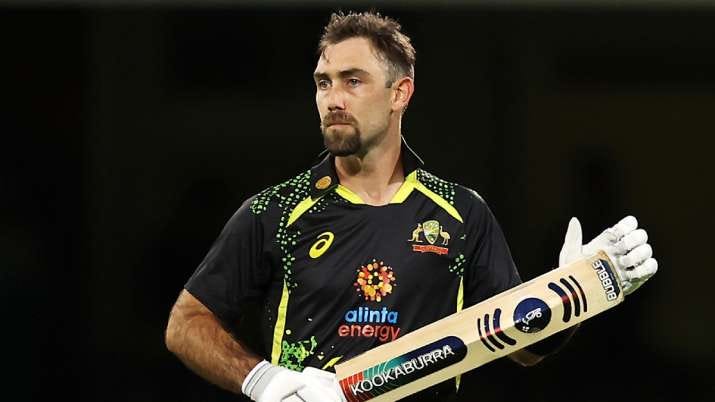Thank God it's Friday ... POTENTIAL V PERFORMANCE, A DELICATE BALANCING ACT
Has Glen Maxwell shed the 'potential' tag, Alex Keath - cricketer turned footballer - now being judged on performance ... some thoughts today, and a look back to November 2013, Thank God it's Friday!
POTENTIAL V PERFORMANCE, A DELICATE BALANCING ACT .. or not .. SpeakingNick, November, 2013
You can read the original post here …
As the AFL season comes to the pointy end, the debate around potential or performance leans heavily one-way. Performance.
Last night, Brisbane ended Richmond’s season with a thrilling two-point win. The game had everything: match-ending injuries, extraordinary goal-kicking and opportunism; momentum changes, and a twist in the tale at the buzzer. Today’s reviews will be focused solely on performance: coaches, players, and teams all being scrutinised. The word potential is firmly in the rear-view mirror.
So, where is the place for potential?
The world of business asks managers the same question as coaches. Performance or potential.
A manager is tasked to staff a high-impact, high-risk project that needs to be delivered “yesterday.” Will they pick a high-performer or a high-potential candidate? They will likely choose the high-performer, the safe bet, often though the decision is not based on the definition of success, his first thought is speed, the shortest time to complete his task, and delivery. There is little thought given to what defines success.
In the coaching world, I believe, the two variables are intrinsically connected.
Potential generally refers to the ability the athlete is yet to realise. As soon as the coach and athlete unlock this potential, you have performance.
This week’s Thank God it’s Friday goes back to November 2013. The two tags weigh differently for individuals. Glenn Maxwell is at one end of the spectrum, and, at the other end, I looked at Alex Keath. That is Keath, the cricketer, now turned footballer.
We can say Maxwell has shed the ‘potential’ tag—there are many reasons for this, just too many for this column. And Keath, it would be easy to argue that the ‘cricket potential’ tag was unlocked, however now on the football field, he is acutely aware of how being judged on performance feels.
SpeakingNick is a reader-supported publication. Both free and paid versions are available. The best way to support me and my work is by taking out a paid subscription now:
POTENTIAL V PERFORMANCE, A DELICATE BALANCING ACT - SpeakingNick, November, 2013
Which is more important in player development – potential or performance? And how does a team’s leadership decide when player development overtakes the importance of delivering results?
Selectors and coaches are continually faced with these questions.
Pilloried, their decisions are dissected at every level by fans impatient for success, often unaware of the untapped potential at their clubs.
For every project player that hits the pool swimming, there are many who flap and kick, only to be saved from a watery grave by those more senior in mind and performance.
Young players are repeatedly selected on the premise of potential – as ‘project players’. Initially darlings of the crowd and the coaches that promote them, they are presented to the masses as ‘the next big thing’. Great sides can hide project players, while fragile teams expose them like rabbits in headlights.
For each individual the tag weighs differently. For some it is a cross to bear, for others validation of their own self-belief. For me, it would only promote feelings of inadequacy and ineptitude.
Glenn Maxwell is one extreme. Recently ridiculed in India by the host team he was labelled the million-dollar baby in reference to his IPL contract and the perceived potential that has not yet been realised. Indians think little of his self-promotion, preferring to present Maxwell as a modern example of all talk, with little walk.
In Maxwell’s case, though, he remains afloat even if the floaties are still attached to his arms. Whether he lives up to his self-proclaimed nickname – the Big Show – remains to be seen. What does bear consideration though is asking where would he be without the floaties, and the exposure that the short form game has provided to him.
Enjoying this post? I would love it if you shared it with your friends who should also be enjoying coffee on a Saturday morning!
At the opposite end of the spectrum is Alex Keath. Keath came to the attention of the Melbourne media three years ago when he stated his preference for cricket over Australian football. His decision to stay in Melbourne was suitably rewarded by Cricket Victoria with a contract and early playing opportunities.
These early hit-outs were spasmodic, with his role neither one nor the other – bat or ball. Batting and bowling in junior cricket is the domain of the talented, and Keath had talent in abundance. However, now with the big boys the results he returned were more modest.
As his batting coach at Melbourne CC, I saw a player with undoubted ability but someone finding the road from potential to performance a demanding one to negotiate. He is still on that road, and the journey has certainly tested his abundantly strong character.
Maxwell has returned to domestic red-ball cricket with a view towards an improbable return to the baggy green. Then he has T20 and the chance to improve his share price. As for Alex Keath and co, it is an entirely different story.
List A cricket has gone, put to bed in three short weeks, this before anyone had chance to notice. Three Sheffield Shield games will have been contested before the first Test, meaning state fringe players will sit on the sidelines, as Test aspirants and returning white ball players fill up XIs. Then, we have two months of T20 cricket, signaling the arrival of international players, in addition to the confusing interstate movement of our domestic talent.
The futures league lives on in a format that makes little sense to many, except those that hide behind the assumption that cricketers between the age of 19 and 23 still need their Weet-Bix served while sitting in a high chair.
Sitting at the bottom of the food chain is grade cricket. Grade cricket feels and looks like a medium that is no longer trusted. Still, it is this environment where you will need to look to locate the peripheral players that strive to get the breakthrough, or return to, the first class arena. Quite why there is such distrust is puzzling, the pasts of so many Australian greats emanate from this environment.
So the question of potential over performance will remain with far-reaching repercussions. A significant dip in the volume of domestic professional cricket will cause a ripple that will be felt all the way through to grade cricket.
Not only will national and state selectors be challenged with decisions over potential or performance, club cricket selectors will also have the task of balancing their books with the state contracted players being available for much of the summer.
Have a great weekend, and as always, thank you for being here.











